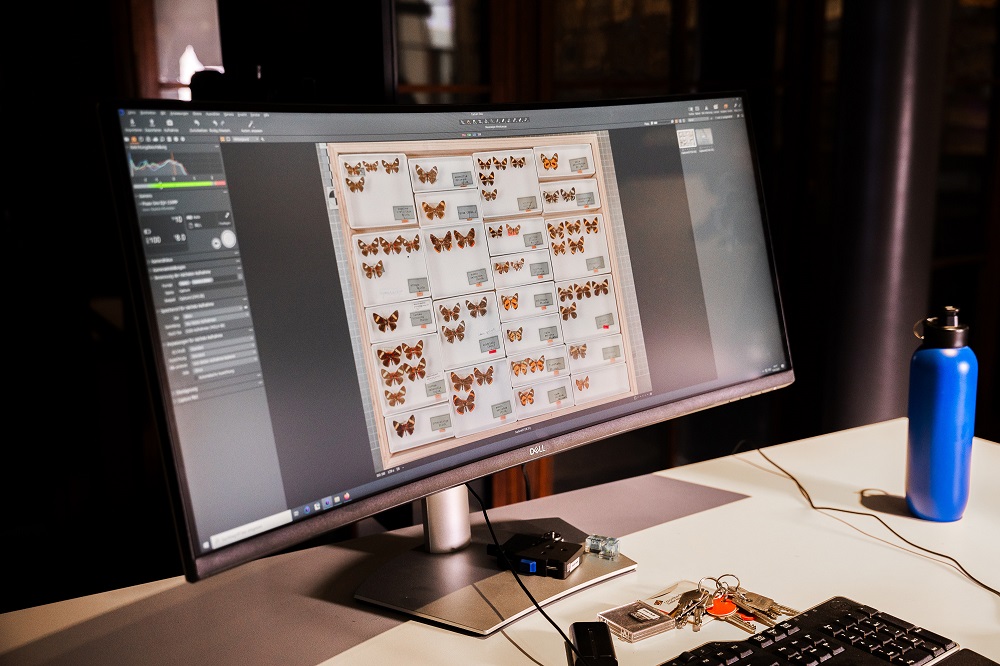
- This event has passed.
[Online Winter School] Research with Natural Science Collections: Data, Quality and Methods

Organisation: German Federation for Biological Data e.V. (GFBio), Museum für Naturkunde Berlin (MfN), German Archaeological Institute (DAI), Vernetzungs- und Kompetenzstelle Open Access Brandenburg (VuK)
Handling research data is becoming key for innovative research. Object-related data in particular can be a challenge here. The WiNoDa Knowledge Lab supports researchers and curators with a five-day intensive course on essential data skills for research with objects in earth system research, archaeology and biodiversity.
Our online seasonal school brings together experts working with natural science collections and is organised in collaboration with NFDI4Biodiversity, a consortium in the German National Research Data Infrastructure NFDI.
Join us to explore the full data journey – from understanding different data types and standards, navigating diverse collection systems, to enriching datasets and improving data quality. Special attention will be given to how to make collection data FAIR (Findable, Accessible, Interoperable, Reusable) and openly available for the scientific community.
Through practical exercises, participants will work with existing collection data, learn how to manage it efficiently using SQL, and gain insights into integrating and harmonizing data across platforms. The course will address conceptual and technical aspects of working with complex data structures.
The seasonal school is suitable for both researchers who work with collection data and curators who want to review and improve the quality of their existing data corpora.
Program
Day 1 | Monday, 24th November
- Introduction to Open Science in Object-Related Research by Philipp Kandler
- Diversity Workbench: Tools for management and curation of specimen-related data by Dagmar Triebel and Tanja Weibulat
- RDM Foundations by Caitlin Thorn
Day 2 | Tuesday, 25th November
- OpenRefine I: Cleaning Messy Data with Ease by David Fichtmüller
- OpenRefine II: Transforming Data by Frederik Berger
- Introduction to data versioning and publication by Tobias Ortwein and Stefan Lenze
- Sharing of primary biodiversity data with the Integrated Publishing Toolkit (IPT) by Jörg Holetschek
Day 3 | Wednesday, 26th November
- A hands-on Introduction to Data management and Analysis with SQL by Fabian Riebschläger
- Specify 7 (CMS) and data cleaning by David Ware
- Automatic Extraction of Structured Information from Inventory Cards by Mathias Zinnen
Day 4 | Thursday, 27th November
- Galaxy Introduction by Sarah Büker
- Using CoordinateCleaner to flag recurrent errors in collection databases by Alexander Zizka and Maria Judith Carmona Higuita
- Data Visualisation with GIS by Caitlin Thorn
- 3D digitization and visualization of small objects by Michael Heethoff
Day 5 | Friday, 28th November
- AI‑powered text recognition and domain transfer by Margot Belot
- BioData Chat: natural language interaction with multiple scientific databases through MCP (Model Context Protocol) by Steffen Vogler
Language: English
Credit: no credits
About us
The Winoda Knowledge Lab is a data competence center which brings together museums, research institutions, and service providers in the field of research infrastructure: GFBio – German Federation for Biological Data e.V. supports researchers in the field of biodiversity research and ecology with training and services for the management of research data along the data life cycle. Its members form the initial core of the NFDI4Biodiversity consortium and, together with the University of Bremen, provide its office. As a leading research museum, the Museum für Naturkunde opens up its scientific collections and conducts research into biodiversity, evolution and geosciences. For archaeological research, the German Archaeological Institute is part of the Winoda Knowledge Lab as a globally active research institution with a focus on international cooperation. The VuK supports the project for the implementation of Open Science and its communication.
Picture: Kirill Tatarenkov
